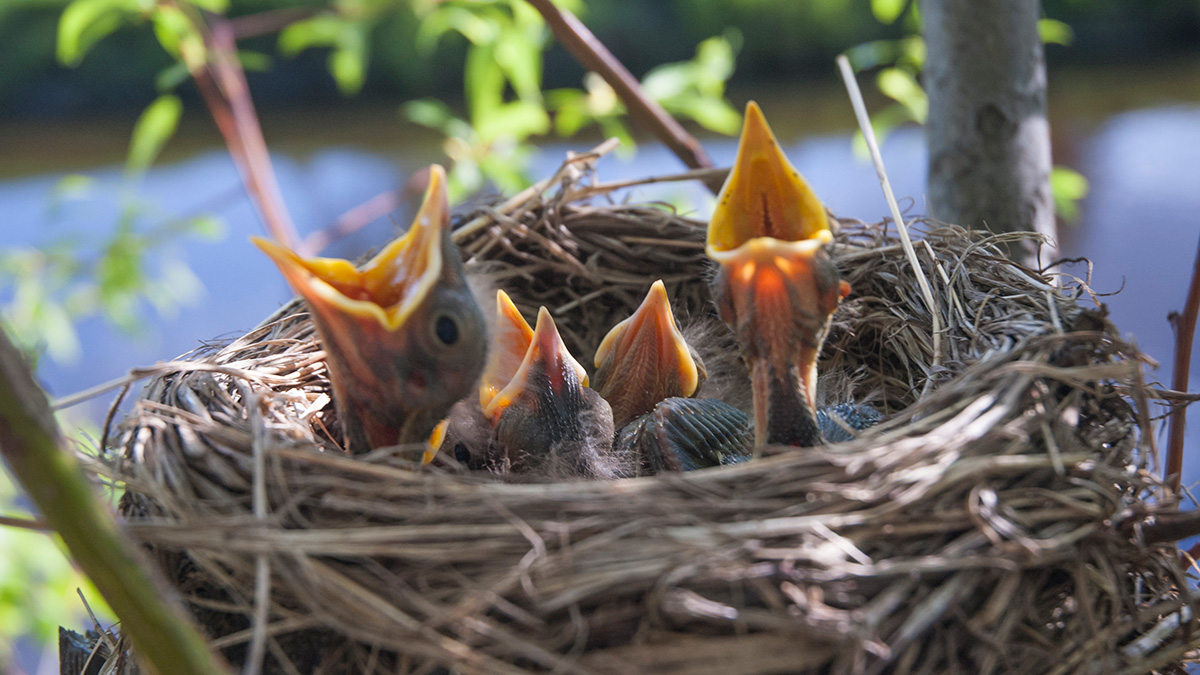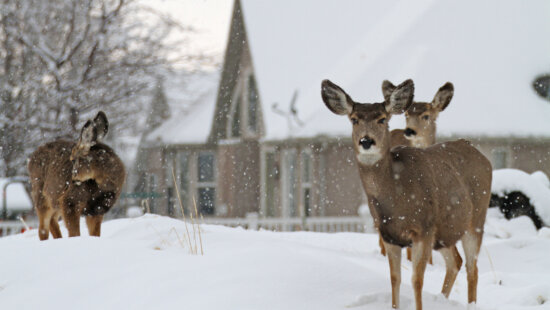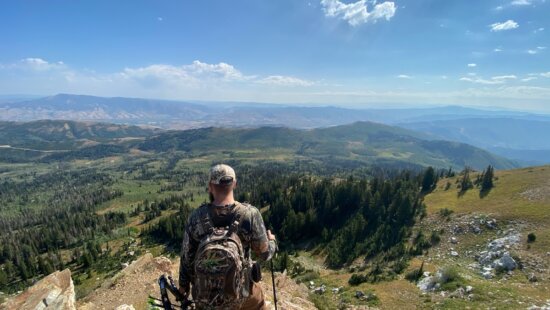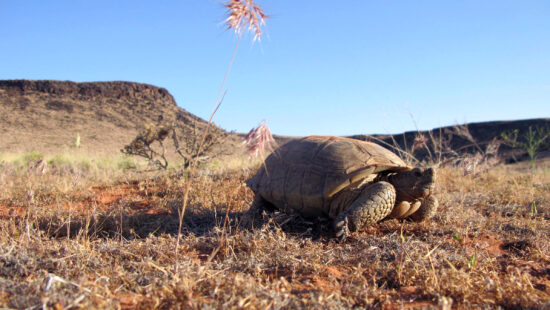Wildlife
Found a baby bird on the ground? Here’s what to do

Baby robins in a nest. Photo: DWR
SALT LAKE CITY — Springtime in Utah brings an increase in baby birds hatching and, occasionally, some end up on the ground. If you come across a baby bird, the Utah Division of Wildlife Resources (DWR) has some important guidance to ensure their safety.
Nestlings: Place Them Back in the Nest
If the baby bird has no feathers and appears small and fragile, it’s likely a nestling. If possible, carefully place it back in its nest. If the nest is out of reach or cannot be found, set the bird on a branch safely away from predators.
“The baby will squawk, and its parents will find it,” said Jason Jones, DWR Migratory Game Bird Coordinator.
Unlike some other wildlife, birds do not have a strong sense of smell, so handling a nestling won’t cause its parents to abandon it. However, it is illegal to keep wild birds as pets in Utah without special permits.
Fledglings: Let Them Be
If the bird has feathers and is hopping around, it’s a fledgling—almost ready to fly. This is a normal stage of development, typically lasting a few days. Its parents are nearby, continuing to feed and watch over it.
“If the bird isn’t in danger, leave it where you found it,” Jones said. “If it’s at risk, carefully move it to a safer spot close by.”
Do Not Feed Baby Birds
Birds have specific diets, and feeding them the wrong food can be fatal.
“While robins can eat worms, other birds cannot,” Jones said. “What seems like help can actually do more harm than good.”
Leave Nests Alone
It is illegal to disturb active nests containing eggs or baby birds. If birds are nesting on your property, any removal efforts must wait until the birds have left. To prevent nesting in unwanted areas, take precautions before the season begins.
What to Do If You Find a Baby Duck
Ducklings that appear alone should not be moved unless they are in immediate danger, such as being trapped in a storm drain or swimming pool. In these cases, contact the nearest DWR office or city officials for assistance.
Avian Flu Precautions
Songbirds are generally not affected by avian flu, but those with backyard chickens or domestic ducks should take extra care. Regularly clean bird feeders and baths, and if you find a group of five or more dead birds, report it to the DWR. Never handle dead birds yourself.
For more information on wildlife safety, visit the Wild Aware Utah website.



















